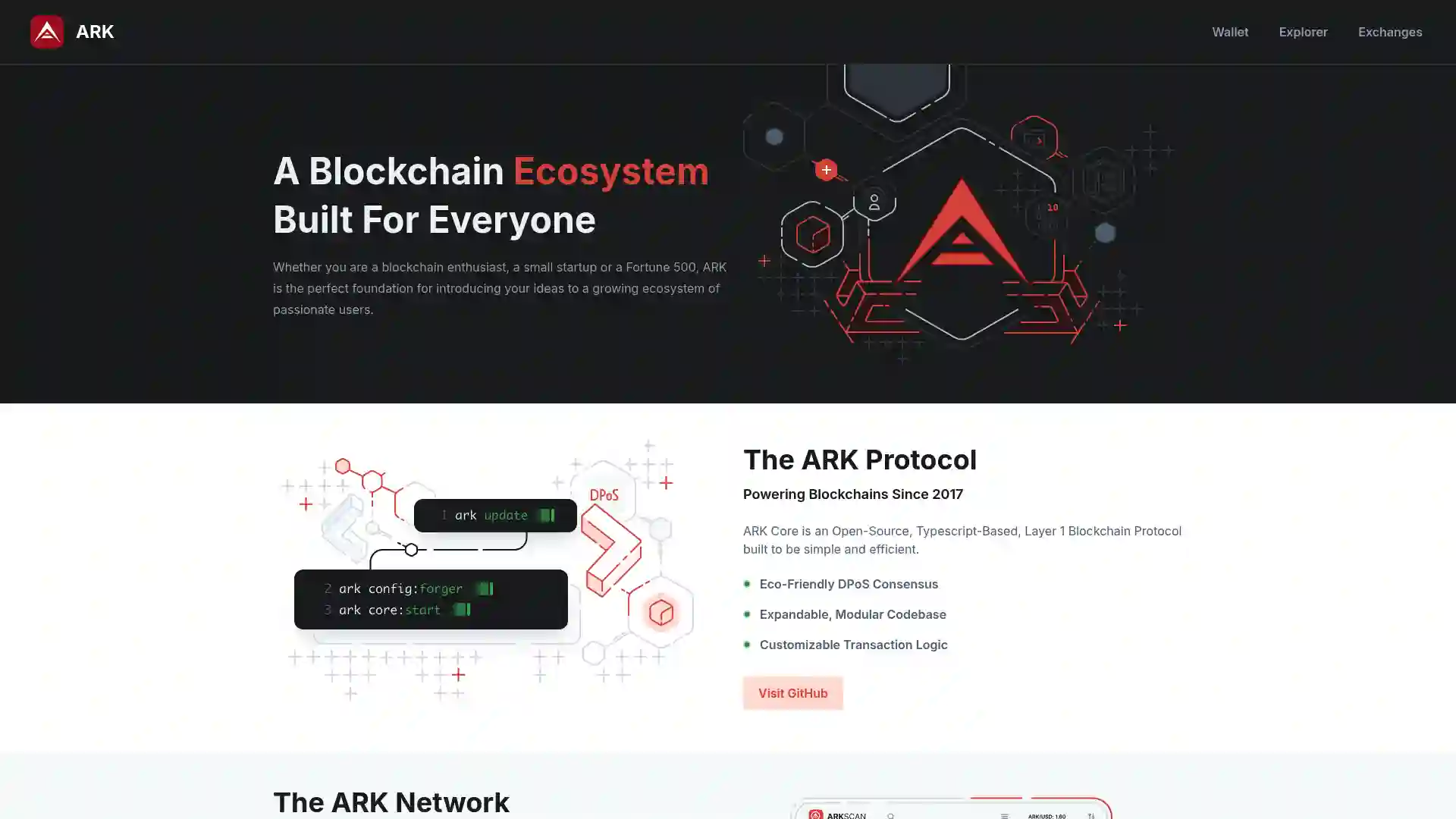ARK (ARK)
ARK is a decentralized ecosystem aimed at enhancing the adoption of blockchain technology. The ARK Crew, a dedicated development team, has articulated in their whitepaper that their mission is to deliver "A Fast Secure Core Technology" paired with "Practical Services for Real People." Essentially, ARK provides a sandbox environment where businesses and users can effortlessly create their own blockchains from an ARK clone in just a few clicks. To maximize accessibility, the team is committed to ensuring an excellent user experience and integrating various blockchains and programming languages.
How does it work?
The ARK ecosystem incorporates several key features to make blockchain technology more accessible:
- SmartBridges
- Alternative Programming Languages
- Push Button Deployable Blockchains

| Ticker | ARK |
| Category | Cryptocurrency |
| Website | https://ark.io/ |
| @ArkEcosystem | |
| Telegram | arkannouncements |
| https://www.reddit.com/r/ArkEcosystem |
SmartBridges facilitate communication between different blockchains via the ARK core platform. This feature allows separate chains to interact and trigger events across each other, which is currently not feasible. Enabling SmartBridges on a blockchain requires only a simple code snippet provided by ARK.
Exchanges such as Coinbase and Shapeshift can also utilize SmartBridges through encoded listeners, acting as intermediaries for these transactions while maintaining their transaction fees.
ARK supports a wide array of programming languages, making it easier for developers to build on the platform. Supported languages include Python, Elixir, RPC, Java, .NET, Go, PHP/Laravel, TypeScript API, Nucleic, Ruby, and Swift iOS. Upcoming support will include R, C, Advanced PowerShell, Rust, Kotlin, and C++.
Push Button Deployable Blockchains enable users to quickly fork ARK to create their projects, ideal for startups with many ARK features included. These chains automatically include SmartBridges.
ARK has also developed a game and application using Html5 for the ARK Mobile Wallet.
Delegated Proof-of-Stake
ARK utilizes a Delegated Proof-of-Stake (DPoS) consensus mechanism. Unlike Bitcoin, where miners secure transactions, ARK relies on delegates. Token holders vote to select active forging delegates from a pool of candidates. ARK has 51 active delegates, and holders are allowed to vote for one delegate at a time, with a voting fee of 1 ARK. More tokens equate to more voting power.
Delegates often propose plans, some of which include profit sharing from block rewards. By voting for a delegate with profit sharing, token holders can earn dividends over time. Other delegates focus on funding development projects or providing services.
The ARK ecosystem was launched with 125 million ARK in its genesis block. Delegates earn 2 ARK per forged block, with a block forged approximately every 8 seconds. This results in a scheduled inflation rate that decreases over time.
ARK's 8-second block time ensures swift transactions, outperforming Bitcoin, Litecoin, and Ethereum. The network currently handles 25 transactions per block, with plans to enhance scalability by reducing block time and increasing transactions per block.
Fees
Sending ARK incurs a transaction fee of 0.1 ARK, subject to change as the network grows. Registering as a delegate costs 25 ARK, and voting/unvoting costs 1 ARK. Upcoming core updates will adjust fees to:
- Sending ARK: 0.01 ARK
- Voting/Unvoting: 0.02 ARK
- Registering a delegate: 10 ARK
These fees are paid to the forging delegate handling the block containing the transactions.
